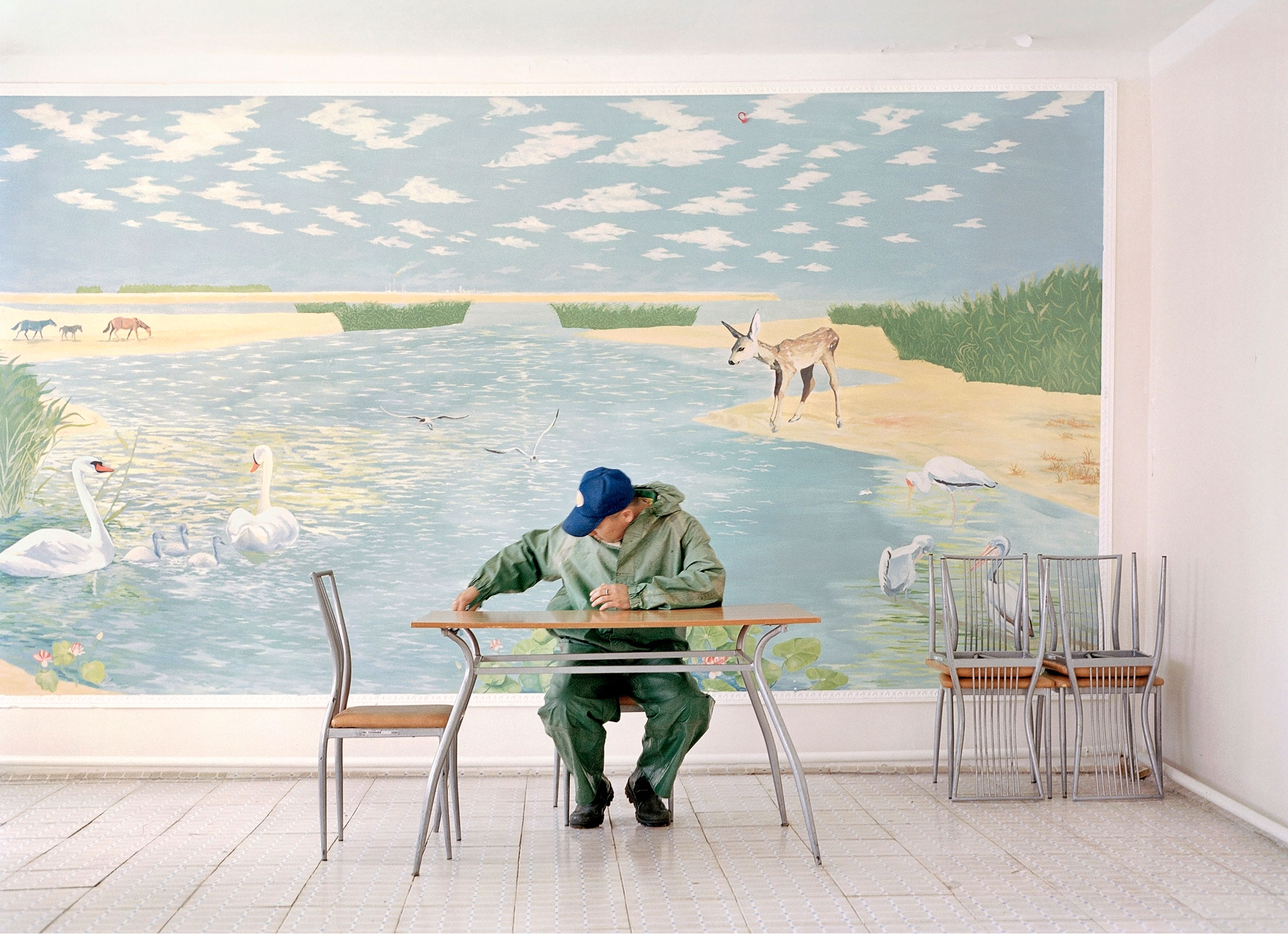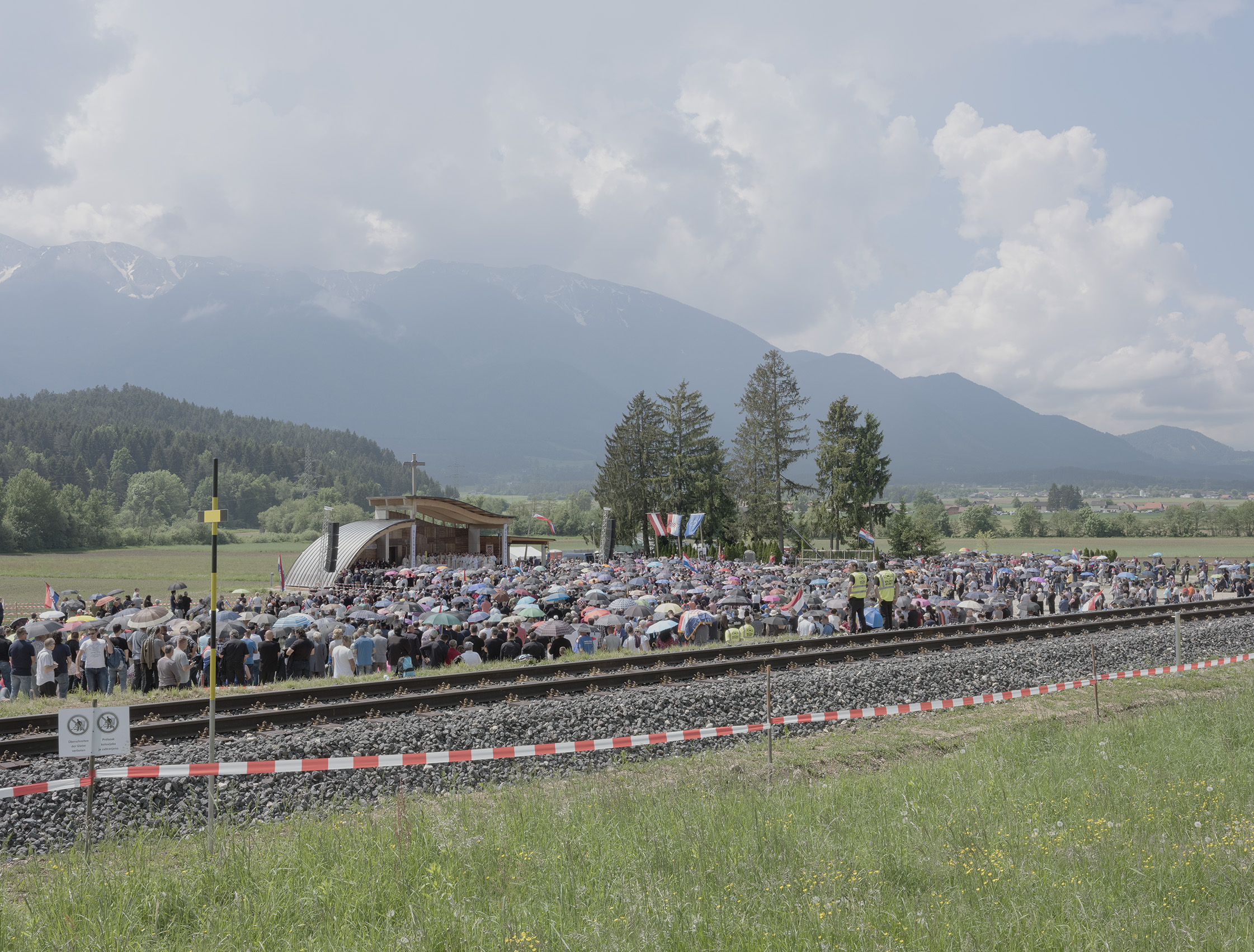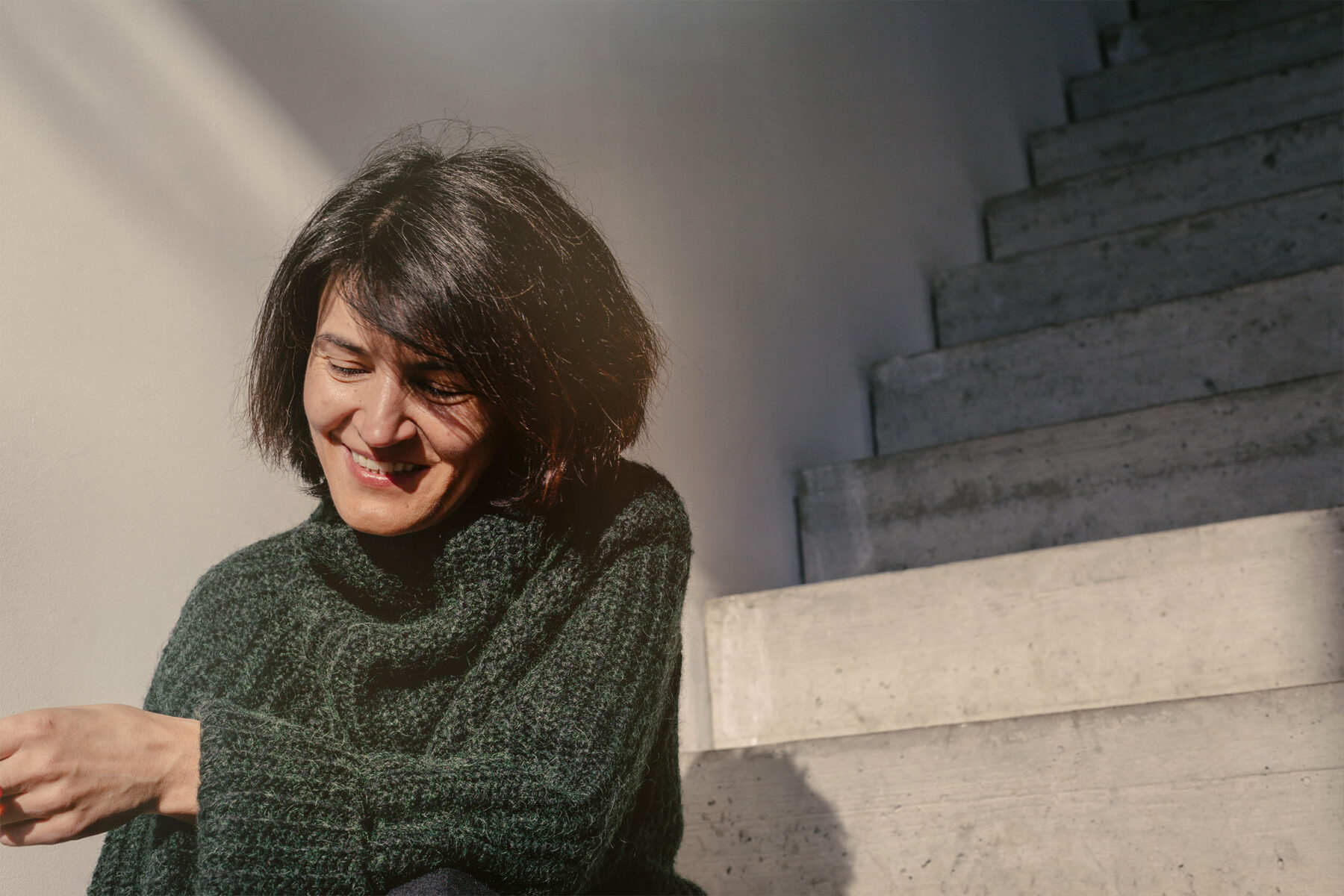History imposes burdens on the present and informs the future. In the work of documentary photographer Mila Teshaieva, it serves to shape identities.
Photographer Mila Teshaieva leans on a concrete wall in a quintessential Berlin hang-out; a staggering building of naked concrete that hosts artist studios and an open-plan restaurant. The Brutalist old-meets-new façade and its endearing bleakness prompt impressions of Eastern European capitals—a region Teshaieva has explored for the past decade. Based in Berlin, she addresses three main themes in her photography: the construction (and deconstruction) of identities, nation-building, and political and ethnic conflict. Seeing her role as a mix of scientific researcher, artist, and documentarist, Teshaieva’s purpose is never just to create images but to ask compelling questions that generate critical thinking. Connecting public and private histories, she examines the past as an anchor to the present; and how the former can manipulate, or even erase, the latter. Chatting with Teshaeiva feels like an in-depth history lesson about the Soviet Union and its societal issues. The conversation is peppered with anecdotes about her personal history that inevitably informs her photography and the many faces she has, at least in the visual sense, given voice to.

Born in Ukraine in 1974, Teshaieva spent the first part of her life in a country that doesn’t exist anymore—the Soviet Union. On the other hand, experiencing its dissolution at a fairly young age, she is not as damaged as others might be. At the age of nine, she joined the Young Communist League like every child her age. “Growing up, you accept things as they are, you’re not thinking or analyzing,” she says. Until she was a teenager and became rebellious. “I was a system crasher in a way,” she recalls, laughing. It’s a character trait that has prevailed ever since. Before emigrating to Germany and studying photography, she worked as a financial analyst in a large corporation—and became part of another system, capitalism—but soon turned her back on it to travel around India alone for three months to pursue her photography. “My life hasn’t had a clear thread,” Teshaieva says. “Quite the opposite, actually, but that’s what made me feel alive and thinking about the world, thinking about people.”
Living under Soviet rule undeniably came with oppression. Though some of the most basic human rights, such as freedom of expression, to name just one, were limited, living there generated a sense of pride among its millions of citizens. They formed communities united by this “bright idea” of socialism paired with a longing for a better future, ideas that were embedded into people’s minds from very young ages. The nation’s dissolution, in turn, meant much more than a collapse of all systems. “Suddenly you’re told that all your past, all your history, all that you believed in is worth nothing. But that’s simply false,” Teshaieva says. This experience has deeply affected her photographic practice, which, at its heart, considers the enormous psychological traumas people who lived under communism suffered from, and how this had led them to fall into deep dissatisfaction—a fact which, in her opinion, remains far from being overcome.





Her first large-scale project, ‘Promising Waters’, took her to Azerbaijan, Turkmenistan, and Kazakhstan—oil and gas-rich countries—in 2010. Azerbaijan, in particular, is a site for research, technological innovation, and engineering related to oil production. Teshaieva’s photographs from this region show signs of modernization; glass and steel structures, newly-built, but empty plazas. From 1991, after the Soviet Union fell apart, the country was independent of foreign rule for the first time in two centuries. To Teshaieva, she saw the newly-constructed society as a metaphor for ever-lasting promises, a source for hope and life. In fact, it showed the same patterns as the Soviet Union; promising “that their country will fly into space one day” and build a new identity on pride. “We are great, we are rich.” Teshaieva felt drawn to loss and isolation instead. She examined the tight connections between the past and the present, the nation and the individual, taking her audience on a subtle yet complex journey through a rapidly evolving landscape. What do people sacrifice for pride? “I realized that every country, every society, every political system is basically trying to manage people’s realities by making us believe in something.”
“Every country, every society, every political system is basically trying to manage people’s realities by making us believe in something.”
The resulting series of landscape images exudes a sense of displacement, but also unreality. It juxtaposes weightlessness in her soft, muted color palette, with socially and historically charged topics, such as loss of heritage and a lack of trust in one’s government. Teshaieva deliberately visited the region in seasons that promise bleak weather and compares her approach to staging plays. In one image, a tropical beach scene, printed on wallpaper, frames an Azerbaijani official standing at his desk. The man’s stiff posture suggests that the composition is staged. “Every government makes its own decorations and people have to adapt to it. It’s never natural; it’s a façade,” Teshaieva exclaims. With this and other ongoing projects, she has visualized what she understands as imagined communities, an anthropological term that describes a nation, and not a real community built on genuine connections. “This idea is made up, it’s imagined, it’s constructed. I want people to think about that because the more critical we look at what we hear, what we read, all the information we consume, the healthier is our society. I strongly believe in that.” Teshaieva’s imagined communities are therefore places of ambiguity, altered by state control, public history, and individual memories. However heady her subject, Teshaieva’s muted, yet saturated images are overarchingly striking.

In 2015, her research led her back to Ukraine. With the project ‘Unfamiliar Memories’, she wanted to understand her native country, which she calls “fresh, young, and undefined. People very much refer to collective memories or histories when they speak about themselves as a nation in a sense of belonging,” she explains. The series depicts people acting out Ukrainian (collective) myths and family histories. The ongoing series is unsettling and enchanting at the same time. Though scenes include burning woods, a woman seemingly fleeing through a forest, and reimaginations of lost family members, the colors and clean compositions introduce a softness. Teshaieva says she deliberately romanticized these staged depictions. “I noticed that people were never critical of their families’ histories; they were always looking at them as like a romantic movie, as something very beautiful; sad but beautiful. When I revived their stories, it triggered something.”
“I was a system crasher in a way.”
For her series ‘Sorry, not Sorry’, Teshaeiva traveled through several Balkan states, where she discovered the phenomenon of nation-building based on victimhood. She visited and photographed commemoration ceremonies that memorialize mass killings that began in World War II and continued throughout the Yugoslav wars of the 1990s. She also entered families’ homes and state-controlled places—“places where memories are often forbidden”, which concludes from an ongoing interest in working through these complex memories that are often swept under the carpet in the name of progress. Recently, the Goethe Institute has commissioned her to focus on capturing coming-of-age stories in Albania and memories of the GDR in the German state of Saxony-Anhalt. Again, she examined the idea of constructed identities, but from a different angle. “It’s a very traditional society with very strict family control. Until you become 18 you should obey rules. At 18, you’re stepping into life, but how can you configure this life if you’re all the time under control?” Teshaieva wonders. She effortlessly seeks to understand how history is so integral to shaping futures.



Mila Teshaieva works as a documentary photographer, dealing with issues like personal and national identities and how they are influenced by history. She is currently represented by Ostkreuz, a Berlin-based photography agency focused on documentary and reportage. Her series, Promising Waters was published by Kehrer Verlag in 2013.
Text: Ann-Christin Schubert
Photography: Aimee Shirley, Mila Teshaieva

